Democratizing electronics one step at a time
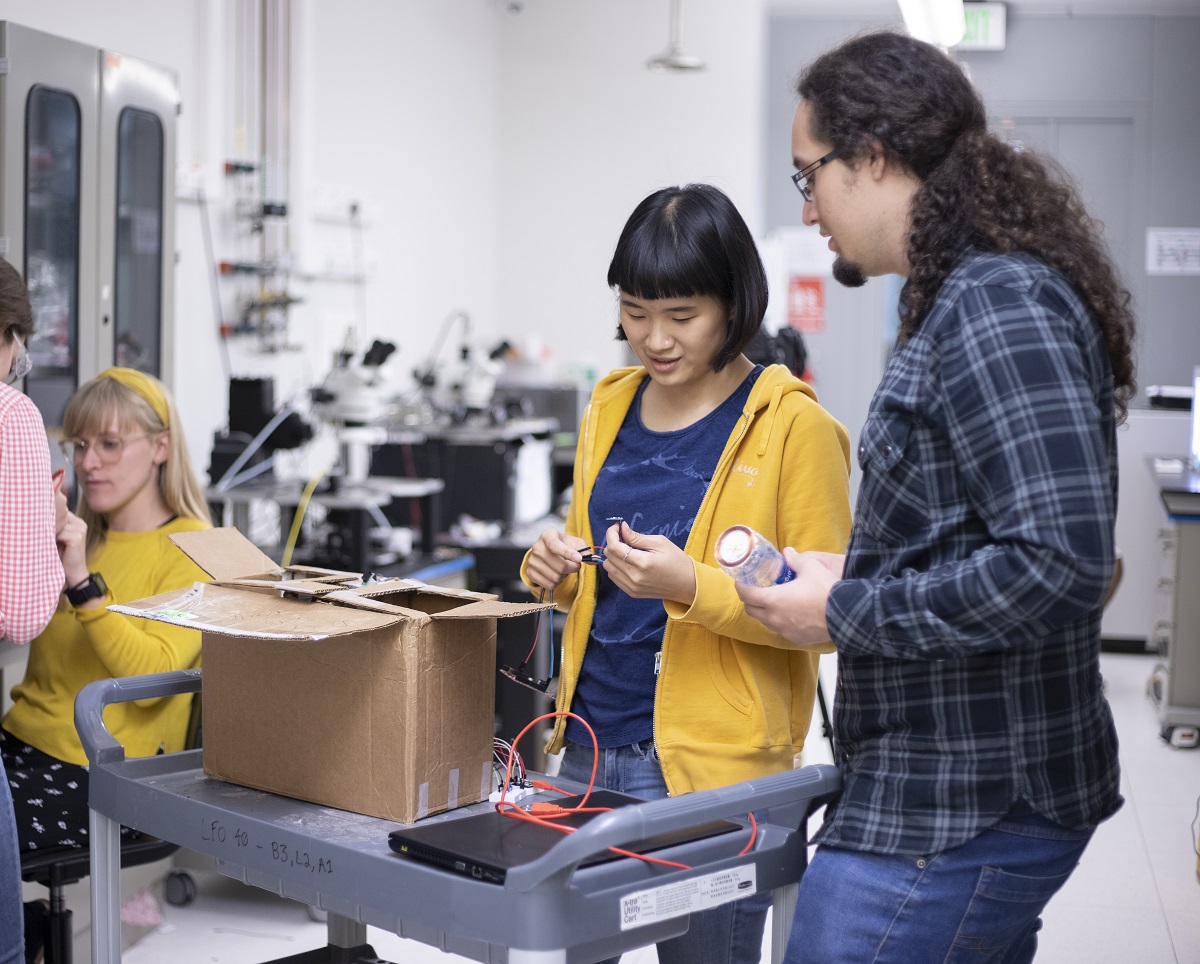
Students work in KAUST Professor Muhammad Mustafa Hussain's lab during the University's Microelectronics Winter Camp 2019. File photo.
By Tanya Petersen, KAUST News
"You would not believe how many amazingly talented people there are in the world, but they often are just not exposed to opportunities," noted Muhammad Mustafa Hussain, KAUST professor of electrical engineering and currently a visiting professor at the University of California, Berkeley. He is determined to try and change this—one step at a time.
Hailing from Bangladesh, Hussain completed a master's degree at the University of Southern California and then another master's degree and his Ph.D. at The University of Texas at Austin before moving into the private sector. His research interests include accessible electronic technology for everyone. He has conceptualized and demonstrated many of the world's firsts in the general area of nanoelectronics and advanced technology for flexible and stretchable complementary metal-oxide-semiconductor (or CMOS) electronic systems.
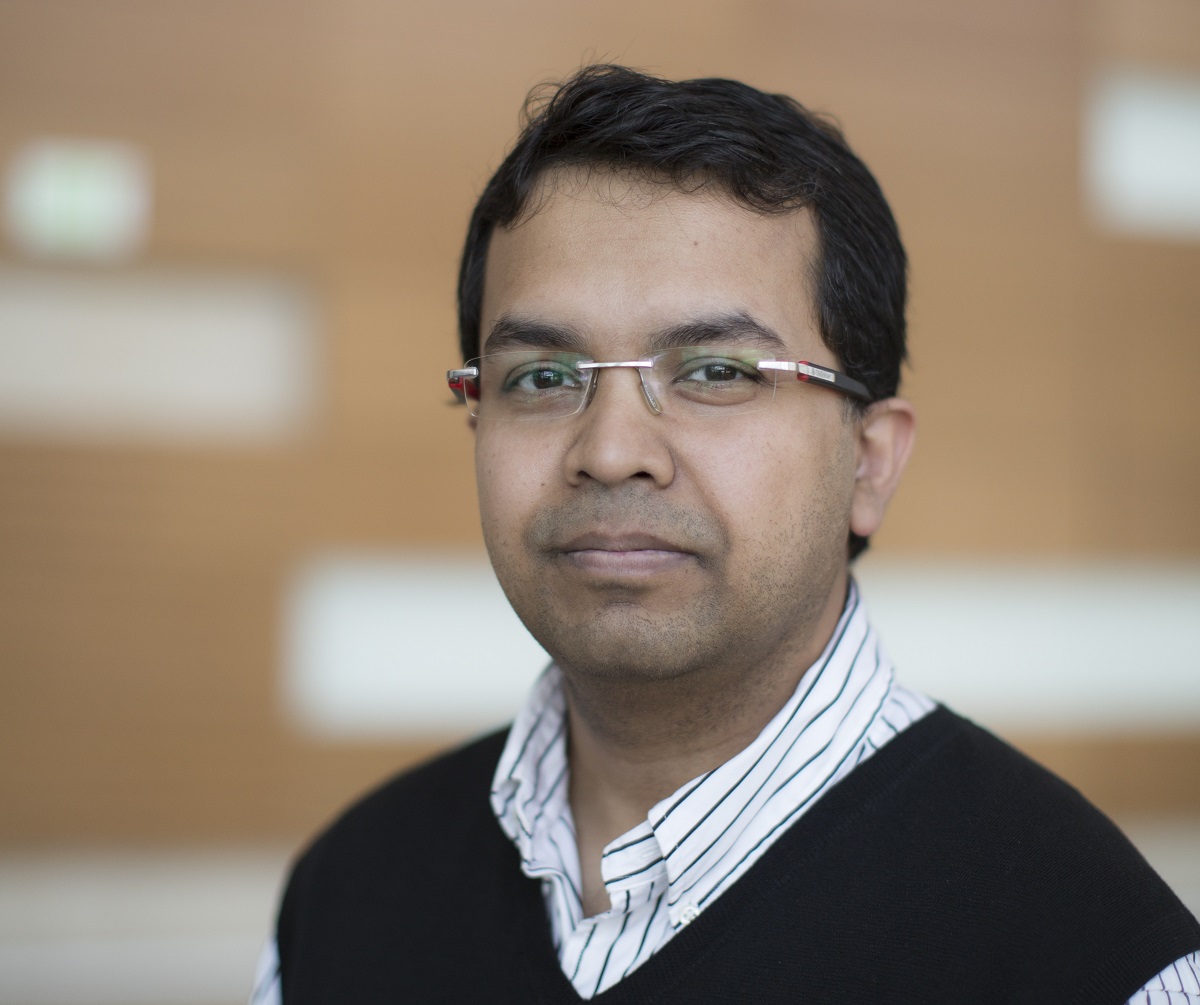
KAUST Professor of Electrical Engineering Muhammad Mustafa Hussain aims to make the latest electronic technology accessible to everyone around the world. File photo.
Research at KAUST
In 2009, he became a KAUST founding faculty member, focusing his work on two key aims. The first was to build electronics for applications that don't exist today or that are simply not possible; and to take these applications to people who don't have access to them for various reasons—perhaps their cost, their complexity or their accessibility. The second was to democratize electronics to empower humanity.
Within Hussain's first aim, he concentrates on electronics in areas where they are not currently broadly used, because, he explained, existing infrastructures are bulky, expensive and complex. His team takes these electronics and tries to make them physically flexible, stretchable and reconfigurable, attempting to minimize the cost and make them easy to understand, simple to deploy and convenient to use.
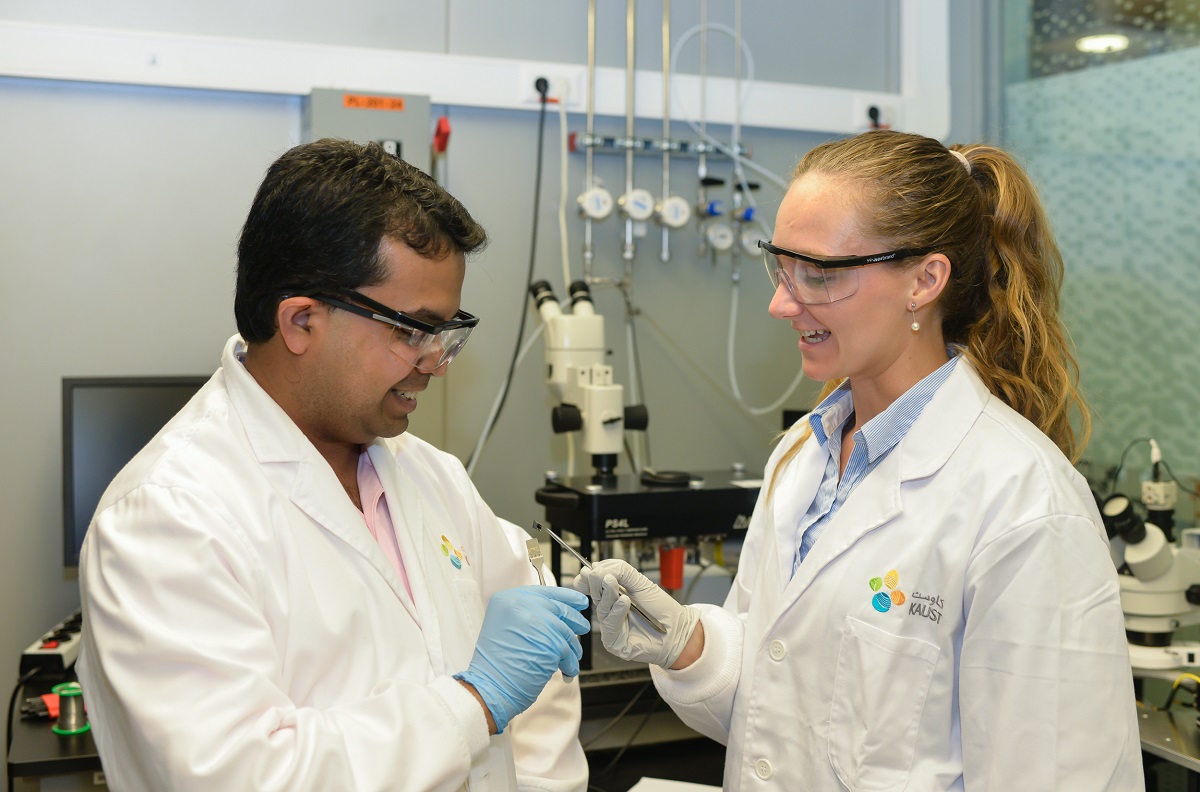
KAUST Professor Muhammad Mustafa Hussain works with former KAUST Ph.D. student Justine Mink (M.S. '10, Ph.D. '13) in his Integrated Nanotechnology Lab on campus. Photo by Marina Kochetyga.
"This is not going to replace existing professional stethoscopes, but it can actually collect information to understand when wheezing starts, how long it continues and how intense it is," Hussain said.
Democratizing electronics
Working towards his vision of democratizing electronics, a few years ago, Hussain started teaching a course at KAUST, deciding to apply a new methodology in which he asked students to follow seven steps—somewhat resembling workplace project management—in order to come up with electronics solutions to everyday problems.
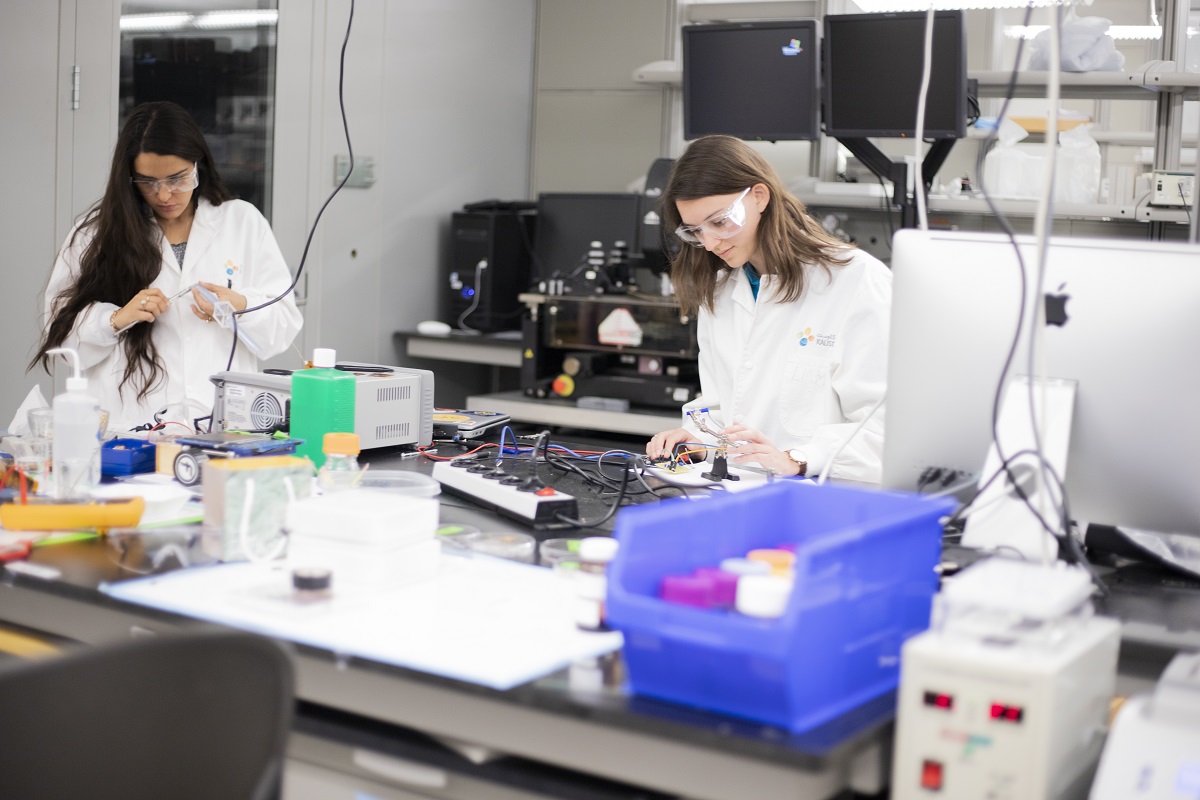
Students create devices in the lab of KAUST Associate Professor Jurgen Kosel as part of the Microelectronics Winter Camp 2019. File photo.
One group of students made a medicinal organizer. Last year, participants came up with a design for the same organizer for patients who have neurological disorders and for the elderly, who may fall. If there is a fall, a small, low-cost, simple device sends a message to caregivers that an incident has taken place.
A unique winter camp
This success of this approach led Hussain to develop more specific workshops using the same methodology. In February 2019—along with Electrical Engineering colleagues Professors Jurgen Kosel, Atif Shamim and Xiaohang Li—he organized the "Microelectronics Winter Camp 2019."
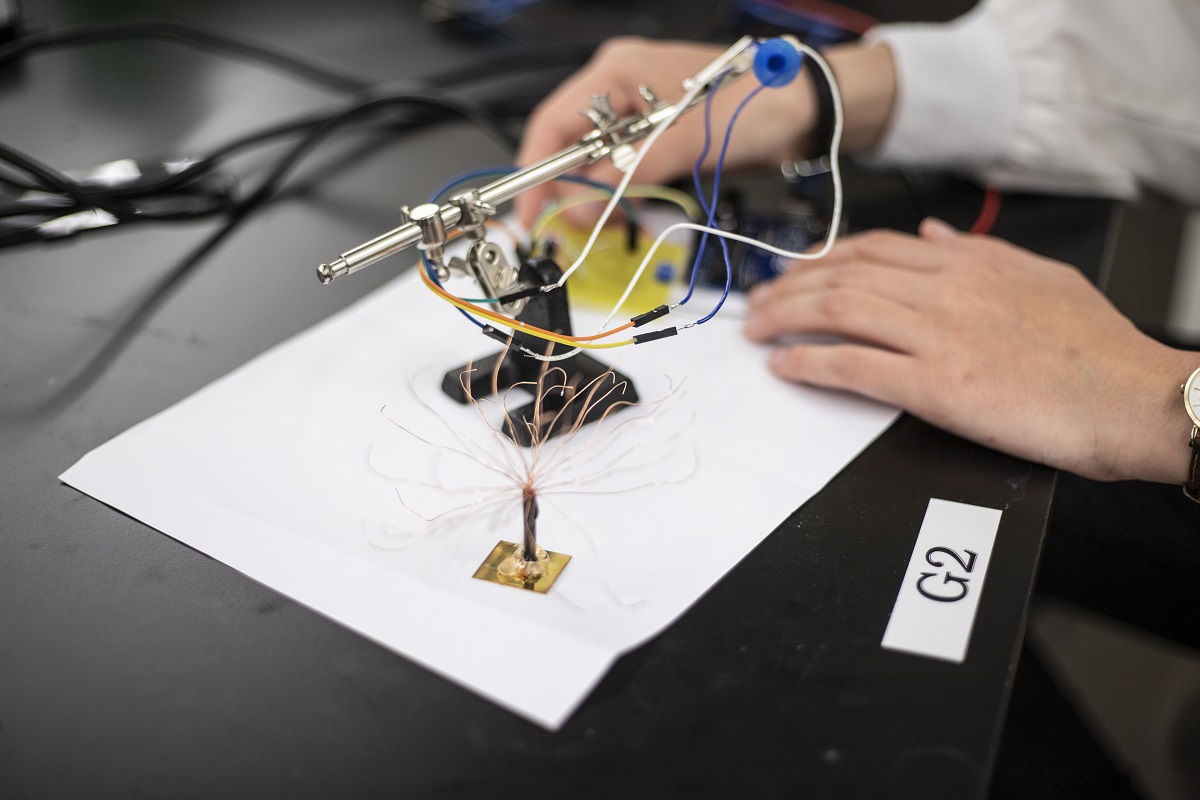
Students create devices in the lab of KAUST Associate Professor Jurgen Kosel as part of the Microelectronics Winter Camp 2019. File photo.

Students from the University's Microelectronics Winter Camp pose at the end of their program. File photo.
Team building to prototypes
In a follow-up workshop called "Berkeley Engineering Innovates," another group of undergraduate students demonstrated an electronics aid to support people after a natural disaster such as an earthquake or wildfire.
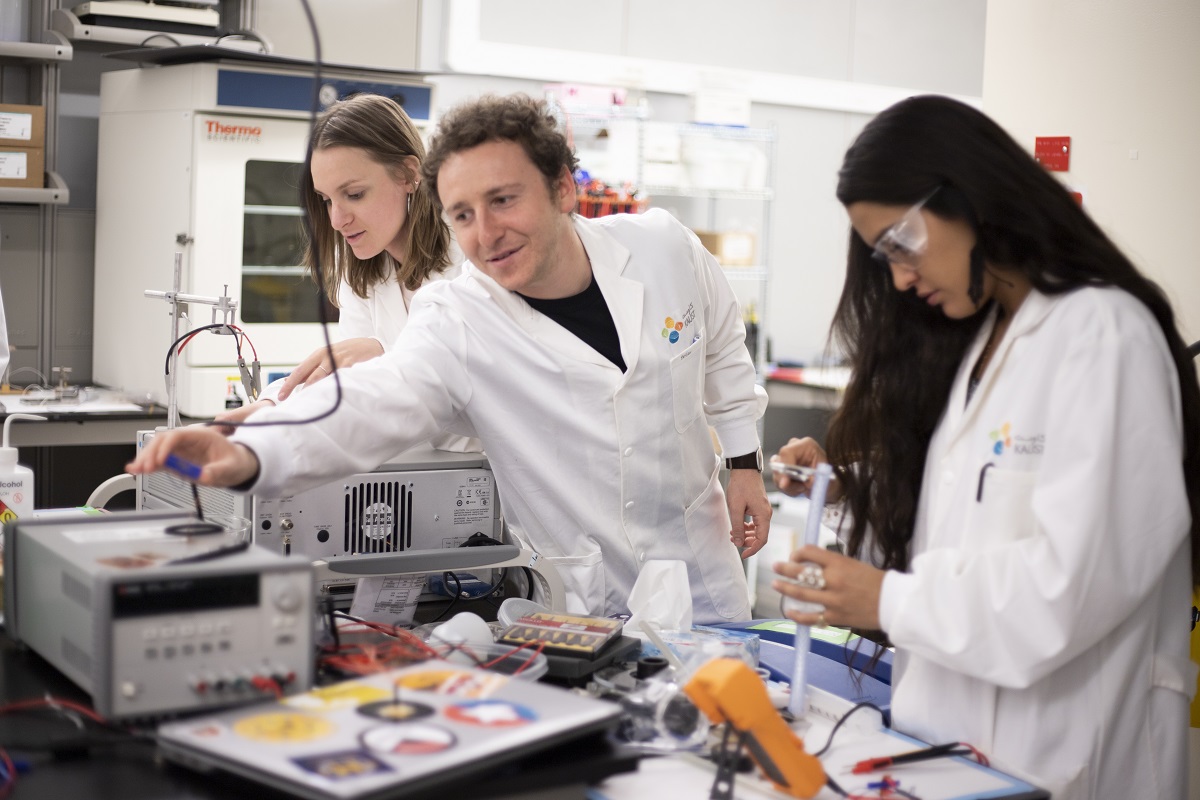
Students finish prototypes in the lab of KAUST Associate Professor Jurgen Kosel during the Microelectronics Winter Camp program. File photo.
By using 120 or so hours of class time, Hussain noted it is wonderful that students can go from team building to finished prototypes. As a result of their work, they have exhibited at the Consumer Electronics Show in Las Vegas and the well-know fair South by Southwest in Austin, Texas. The prototypes were well-received and are currently under commercialization.

Four students who worked in KAUST Professor Muhammad Mustafa Hussain's lab during the University's recent Microelectronics Winter Camp present their prototype at the end of the program. File photo.
A diversity of ideas
Hussain believes there is huge value in the thousands of cultural differences that exist around the world and how these allow people to approach problem solving and generate innovative ideas from different perspectives. He is planning a Saudi-specific workshop at KAUST to focus on local challenges and problem solving—and, to grow the rich tapestry of global thinking, he dreams of rolling out his Schools for Microelectronics, Gadget and Widget Design around the world.
Students from around the world worked in KAUST Professor Muhammad Mustafa Hussain's lab during the University's Microelectronics Winter Camp 2019. File photo

